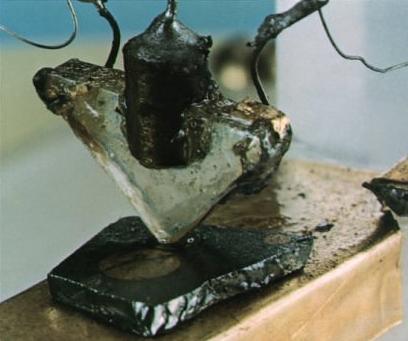 ...or rather, I blame the transistor radio, cranking out newly portable tunes over those funky solid state electronics. The audacity of those engineers, I mean, really.
...or rather, I blame the transistor radio, cranking out newly portable tunes over those funky solid state electronics. The audacity of those engineers, I mean, really.
By shrinking the size and power requirements for signal amplification, they made it so you could truck those things around anywhere, getting them out of the staid family room into the car, away from Mom and Dad's watchful eye. When the Japanese got their hands on the technology in the early sixties, the price of a transistor radio dropped to $20 (less than an iPod in 2007 dollars), it opened the door to what companies needed to get filthy rich: high turnover of content, monopolistic control of its release, and marketing directly to young people. We all heard too much of the case against radio distribution in the Napster days, but in its time, radio put the idea of creating demand on the map.
Now, I like the Beatles, I really do. I like how their songs range from lightweight and happy, to lightweight and serious (like scowling kittens). Yeah, they wrote well, and I've even been almost convinced a time or two that they wrote brilliantly, and sure, they had an interesting group dynamic, and they moved along with their times, blah blah blah, but by the Jesus they were bigger than, they revolutionized music like George Lucas revolutionized science fiction. They repackaged old ideas with an admittedly novel spin and with broader range (than some), but I see their outsized legacy as much as a function of luck and timing than anything.
They had the indescribable good fortune of providing a product when America was hungry for it, lucky enough to have a manager who had already packaged it. They were just in time to take advantage of widespread youth-oriented radio distribution, and just in time grab the American television audience as the post-war generation came into consuming age. They had savvy marketers, and they were smart enough---and yes, good enough musicians--to keep updating their image and their material. They were fortunate enough to be white. Not bad for a good-time Hamburg bar band. But on the other hand, when serious people debate the genius of the gang that sonically smirked through "Love Me Do" with the bunch that harmonized "Help Me Rhonda," then maybe that's a little telling.  The fortieth anniversary of Sergeant Pepper's Lonely Heart's Club band passed without much notice from me. There was some necessary (and only somewhat eye-rolling) hagiography on NPR, the requisite contrarian (but surprisingly even-handed) Slate article, and you know, I was mostly okay with it. I mean hey, I wasn't there. But even gentle Keifus has a limited tolerance for hero-worship. It was good and all, but constantly calling it the most brilliant musical composition evah is a little tiring. When American Idol contestants hashed out the old legacy, it didn't feel inappropriate. (If AI is anything, it's about recapturing that radio distribution model.) This weekend my daughter's fourth grade class is singing Sgt. Pepper (the song) as part of their year-end musical show, and that seems to capture the happier spin the Beatles sought even behind their deeper efforts. Yeah, that suits me just right.
The fortieth anniversary of Sergeant Pepper's Lonely Heart's Club band passed without much notice from me. There was some necessary (and only somewhat eye-rolling) hagiography on NPR, the requisite contrarian (but surprisingly even-handed) Slate article, and you know, I was mostly okay with it. I mean hey, I wasn't there. But even gentle Keifus has a limited tolerance for hero-worship. It was good and all, but constantly calling it the most brilliant musical composition evah is a little tiring. When American Idol contestants hashed out the old legacy, it didn't feel inappropriate. (If AI is anything, it's about recapturing that radio distribution model.) This weekend my daughter's fourth grade class is singing Sgt. Pepper (the song) as part of their year-end musical show, and that seems to capture the happier spin the Beatles sought even behind their deeper efforts. Yeah, that suits me just right.
Keifus
P.S. You wouldn't believe what you can write a thesis on these days.
SYNDICATE OF SOUND
-
The ongoing fascination with garage rock, the music created by young
American teens in the 60s in emulation of British bands and West Coast
Psychedeli...
2 days ago
